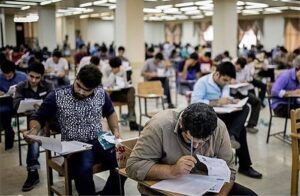KABUL (SW): Supporting open media in Afghanistan (NAI) wrote in its new report that activists, journalists and Afghan media staff, despite of facing many violent incidents during the preparation and distribution of reports, their rights are violated inside the organization they work for, and are not treated in accordance with the regulations on the establishment and activities of private media outlets.
Abdul Majeed Khalwatgar, the executive director of NAI said at a news conference in Kabul on Monday that the findings of their report show that the rights and privileges of journalists and media employees were violated by media owners and that no journalist and media employees have job protection in Afghanistan.
According to Mr. Khalwatgar, more than 90 percent of media workers did not receive their salary on time, more than 50 percent of them did not benefit from official off-days, 70 percent of journalists were deprived of privileges of promotions within their office, and 100 percent of them have no job security.

Mr. Khalwatgar said that their reports were based on data, media reports, written complaints from reporters and media workers from the beginning of 2002 to the month of October/November 2012 and were also based on surveys.
Mukhtar Wafayee, the head of a news website said that violence against journalists in Afghanistan has many reasons. According to him, most people do not have the lowest level of awareness about the law on the establishment of media and the law to access information in the country.
Failure to enter into a contract, failure to pay salary on time, lack of retirement benefits, lack of legal vacations, unlawful defection, intervention of media directors and owners of medias in professional work, and several explicit violations of the regulations governing the establishment and activities of private media and the lack of job protection for journalists are the main topics of the reports of NAI.
NAI believes that violation of rights of journalists were detrimental to the media industry in the country and called on owners and managers of media outlets in Afghanistan to address these issues and prevent further harm to the freedom of expression.
ENDS





